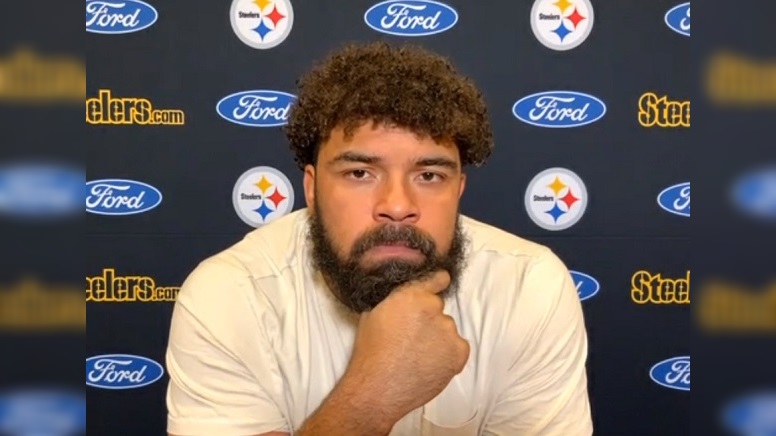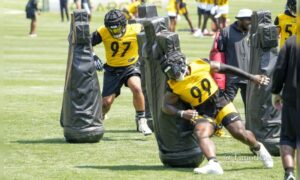Turning the ball over is pretty much the cardinal sin in the NFL. Ball security is paramount, but hitting explosive plays is also critical, and running plays that produce the splash you’re looking for tend to be more risky and produce a higher rate of turnovers, so it’s a double-edged sword.
For such teams that do turn the ball over—or in instances where you turn the ball over an uncharacteristic amount, which was the case for the Pittsburgh Steelers on Sunday—it’s imperative that you have a strong complementary performance from your defense, which can at the very least hold your opponent to field goals rather than touchdowns to minimize the damage caused by those lost possessions.
They certainly didn’t get that from their defense against the Cleveland Browns in the Wildcard Round, and in fact it played a crucial role in digging the Steelers a hole too deep to dig out of by the end of the first quarter. While the offense itself was responsible for the first score, the defense would ultimately relinquish two touchdowns off of turnovers in the first half, and later a field goal in the second.
Granted, the Steelers ultimately lost by 11 points, and turning those two touchdowns into field goals would only make it an eight-point swing, so if you make the minimum of changes in this scenario, it still ends up a 40-37 loss.
But 28-0 and 20-0, or even 17-0, or 14-0, or 13-0, etc., and certainly make a big difference in shaping how the rest of the game is played, by both sides. And the defense’s captain, Cameron Heyward, understands that this is where the responsibility lies for his group.
“You look back to this game and you think as a defense, you didn’t control the rushing, you didn’t get off the field, you didn’t get any turnovers, any sacks, and we weren’t playing complementary football to the offense”, he told reporters on Sunday night after the game. “If they turn over the ball, at least surrender three points. And we didn’t do that”.
Complementary football in the form of quick-change defense is something that head coach Mike Tomlin harps on a lot, referring to the role of the defense in limiting the damage when the offense turns the ball over by getting off the field, or at least holding them to a field goal if the field position precludes them from forcing a punt.
This, among other reasons, is why the defense shares a bit chunk of the blame for this weekend’s loss even when the offense turned the ball over five times. Heyward knows it, and owns it. but they won’t have any chance to respond to it until September.








